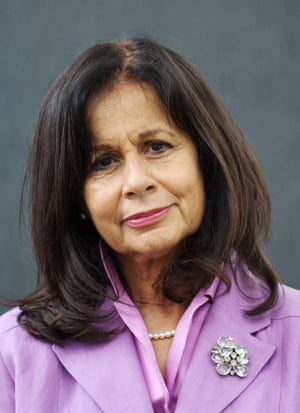
By Avi Shlaim
Doctor, author, academic and political activist Ghada Karmi is versatile, cosmopolitan and highly intelligent, and comes across as both self-absorbed and deeply committed to the struggle for Palestinian rights. She has dual identity as a thoroughly anglicised woman who is also a staunch Palestinian nationalist, adept at presenting the Palestinian case to a western audience.
Karmi’s academic books on the history of the Israeli-Palestinian conflict do not add significantly to the voluminous literature on the subject. Her autobiographical works, however, provide a unique perspective on the Palestinian predicament. She is at her very best when she writes about herself. In Search of Fatima was a beautifully written and moving narrative of her displacement from Jerusalem in 1948 set against the backdrop of the major political events that shaped the course of modern Palestinian history. Return is both a sequel and a standalone memoir. On display is the same fluent writing style, the psychological insight and the outstanding skill for mixing the personal with the political.
In 2005, Karmi returned to her homeland not as a tourist but as a consultant to the ministry of media and communications of the Palestinian Authority in Ramallah. She wanted to be at the heart of things, to be part of the community, to make her contribution to state-building. But the actual experience she records in this memoir is one of pretty comprehensive disappointment and disillusion. The reader is invited to see through her eyes this angst-filled, rollercoaster journey.
Working for the PA turned out to be at once exhilarating and exhausting. It behaved as if it were the government of a state, with departments of finance, transport, education, health, etc; but, in reality, everything in the Palestinian occupied territories was controlled by Israel. By being on the inside, Karmi became aware of the profound and pervasive impact of Israeli power. She places both Israel and the PA under an harsh lens. The PA, she argues, assumed the trappings of a sovereignty over its lands while in reality it was subservient to the occupying power in every sense and at every level. With practically no sources of income of its own, it is heavily dependent on foreign aid from a variety of places. To Karmi’s way of thinking, the PA’s only honourable path is to abandon its empty, posturing display of power and to assume its proper role as the leadership of a people under colonial occupation.
The picture painted by her of the inner workings of her ministry is unflattering in the extreme, verging on the surreal. The ministry existed in a bubble of its own, paralysed by internal rivalries and petty bureaucratic infighting. Most of her colleagues saw her as a bossy and arrogant outsider and thwarted her at every turn. She looked with horror on the many Palestinian opportunists and time-servers who betrayed the ideals of the revolution although they brandished them whenever it was expedient. So the return to Palestine produced not a sense of solidarity in the struggle for the common cause but rather bitterness and alienation. Wherever the well-intentioned doctor went, she was out of place: too Palestinian in Britain and too British in Palestine.

Karmi’s entire life had centred on the fundamental facts of the catastrophe of 1948, from which all else was derivative. By her own estimation, she is one of the custodians of Palestinian history. So it came as a bit of a shock to discover that for the Palestinians in the occupied territories, people like her are irrelevant, far removed from the immediate reality of the extraordinarily harsh conditions imposed on them by the Israelis, their army and their settlements. It was not that the past was another country. But the locals were more preoccupied with the daily struggle for survival against a brutal oppressor than with the grand Palestinian narrative of the past.
In her travels through the occupied territories, Karmi saw nothing to lift her spirits. The worst blot on the landscape was the so-called “security barrier” that the Israelis are building on the West Bank in flagrant violation of international law. Israel’s transgressions against the Palestinians were nothing new to her. She had been campaigning against them since 1971. Surely, she thought, the wall was but another addition to a long, unsavoury symbol of something indefinably cruel; a naked expression of Israeli entitlement. Its brazen message to the world was: “This country was Israel’s and Israel’s alone, to settle, loot, divide, carve up, refashion, rename, and do with whatever it pleased.”
Karmi’s core belief throughout her adult life had been that the crime committed by Israel against the Palestinians in 1948 would somehow have to be redressed, that the dispossessed Palestinian nation must one day return to its country. Despite the defeatism of the Palestinian official stance and the indifference of many of the Palestinians around her, Karmi never doubted the rightness of her position. But following her return to Palestine, her core belief in that certainty began to falter. Her time there taught her that two fundamentals she had always believed in had been transformed out of all recognition: there was no national cause any more and no unified national struggle for return. She looked back on her whole assignment in “Palestine” and realised that she had achieved none of her aims because that would never have been possible in the Palestine that she found. She had travelled to the land of her birth with a sense of return, but it was a return to the past, to the Palestine of a distant memory, not to the dismal present place.In the Gaza Strip, Karmi saw nothing but a spectrum of despair. The dire situation in Gaza was of Israel’s making, created out of deliberate impoverishment and violence. It was a cruel social experiment in isolating almost half the population of Palestine, with far-reaching consequences for the society as a whole. Extremism, escapism, fanaticism and conspiracy theories thrive in such environments, and Gaza is prey to all of these. At one end of the scale of despair, Karmi saw suspicious, inward-looking people, averse to strangers; at the other end, she saw people enveloped in their cosy vision of a triumphant Islam that would vanquish their enemies. The wonder for Karmi was not that Gaza was caving in to narrow-mindedness and extreme religiosity but that, despite its depredations, it was still on its feet and fighting to stay alive.
Karmi’s journey filled her with bitterness and grief. She remembers looking down on a night-time Tel Aviv from the windows of a plane that took her back to London and thinking to herself: “Flotsam and jetsam, that’s what we have become, scattered and divided. There’s no room for us or our memories here. And it won’t ever be reversed.” This is a depressing conclusion to a profoundly depressing book. One puts it down with sympathy for the conflicted chronicler and a better appreciation of the formidable obstacles that remain on the road to Palestinian independence and statehood
.
.

No comments:
Post a Comment